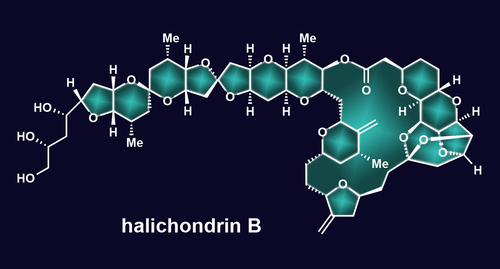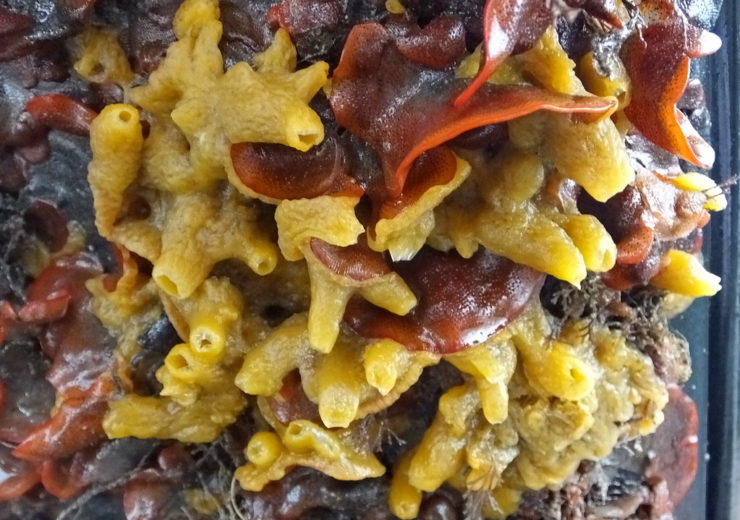In the late 1900’s, chemists discovered a compound in three different species of marine worm collected from a cold northern Pacific sea. The discovery resulted from the continuous search for promising medicinal compounds in natural sources! This compound, called halichondrin B, has proven to be one of the most remarkable discoveries from chemists to date.
What is Halichondrin B?
Halichondrin B is a substance that was first isolated from a sea sponge in the late 1986s. It has since been shown to be a potent cancer-fighting agent, and is currently being studied as a potential treatment for several types of cancer.
It works by inhibiting the growth of cancer cells, and has been shown to be effective against a wide variety of tumors in animal studies. In addition, it has also been shown to improve the efficacy of other cancer treatments, such as chemotherapy.
While it is still in the early stages of development, it shows promise as a potential treatment for many types of cancer.
How it was discovered?
In the early 1990s, a group of Japanese researchers was studying a class of compounds called halichondrins, which were known to have anti-tumor activity. One particular halichondrin, called halichondrin B, seemed to be particularly potent. The researchers wondered whether this compound could be used to treat cancer.
To test this hypothesis, they injected mice with halichondrin B and found that it was able to shrink tumors by up to 80%. Further studies showed that halichondrin B was more effective than existing cancer drugs at killing tumor cells. However, there was one major problem: it is very difficult to synthesize in the laboratory.
The researchers turned to nature for help and found that a type of sea sponge called Haliscomenobacterium spongioticum produces halichondrin B in large quantities. They were able to extract the compound from the sponge and show that it has potent anti-cancer activity in vitro and in vivo.
Today, it is being studied as a potential treatment for various types of cancer, including breast cancer, ovarian cancer, and lung cancer. clinical trials are ongoing and we hope that this promising compound will one day be available as a treatment for cancer patients.
How Does Halichondrin B Fight Cancer?
The unique structure of halichondrin B makes it a very effective cancer-fighting agent. When it binds to the cancer cells, it inhibits the growth of the tumor by preventing the cancer cells from dividing and growing. Additionally, it also damages the DNA of the cancer cells, which leads to the death of the cells.

Halichondrin B is a very potent cancer-fighting drug, and it has been shown to be effective against a wide variety of cancers, including breast, lung, and colorectal cancer. It is currently being tested in clinical trials as a potential treatment for ovarian and pancreatic cancer.
What are the Known Side Effects of Halichondrin B?
There are a few minor side effects that have been reported with the use of halichondrin B, such as mild nausea, vomiting, and headache. However, these side effects are typically mild and go away on their own. There have been no major side effects reported with the use of halichondrin B.
Why Our Current Medicines are Useless Against Cancer
The current medicines used to treat cancer are mostly chemotherapy drugs that work by killing fast-growing cells. However, cancer cells often mutate and become resistant to these drugs. As a result, chemotherapy becomes less effective over time.
There is a desperate need for new cancer treatments that can target specific mutations and overcome drug resistance. Halichondrin B is a promising new drug that shows great promise in treating cancer.
Halichondrin B is derived from a marine sponge found in the waters off Japan. It works by targeting a specific protein that is necessary for cancer cell growth. This protein is found in high levels in many types of cancer, including breast, lung, and stomach cancers.
It has been shown to be very effective in laboratory studies against a wide range of human cancers. In some cases, it has been able to completely eradicate tumors. It also appears to be safe and well-tolerated in humans, with few side effects reported so far.
Conclusion
While more research needs to be done on halichondrin B and its potential as a cancer treatment, the preliminary results are promising. This natural compound shows great promise as a cancer-fighting agent, with very few side effects. If you or someone you know is battling cancer, ask your doctor if halichondrin B could be right for you.
See Also:
- A Mind-Blowing, Game-Changing Study In Cancer Treatment Trial Completely Eradicates Cancer In 18 People
- Early Detection and Diagnosis Makes Cancer A Winning Battle For All, says Doctors
- Popular Myths and Facts about Gynaecological Cancers
- Covid-19 pandemic has taken away focus, resources from cancer patients needing palliative care
- What you need to know about Non-Hodgkin’s Lymphoma
